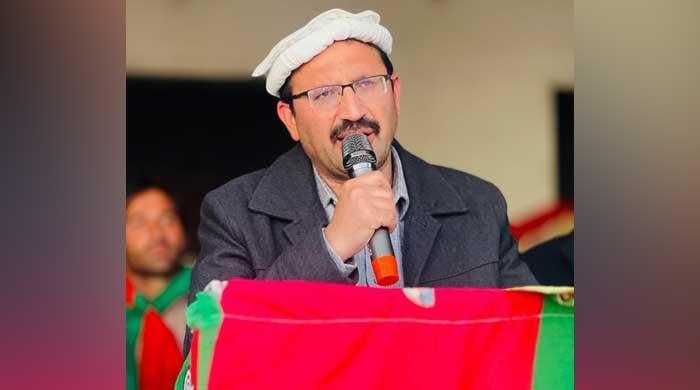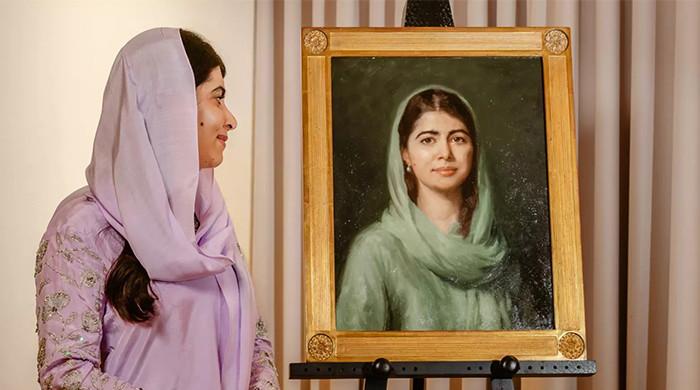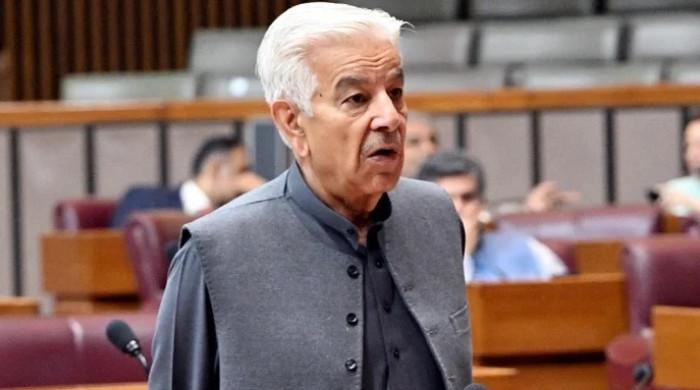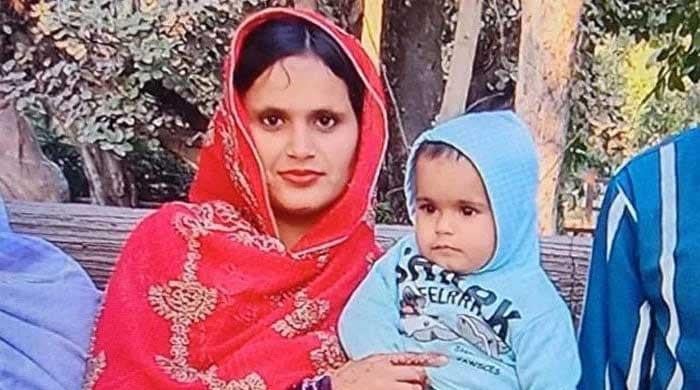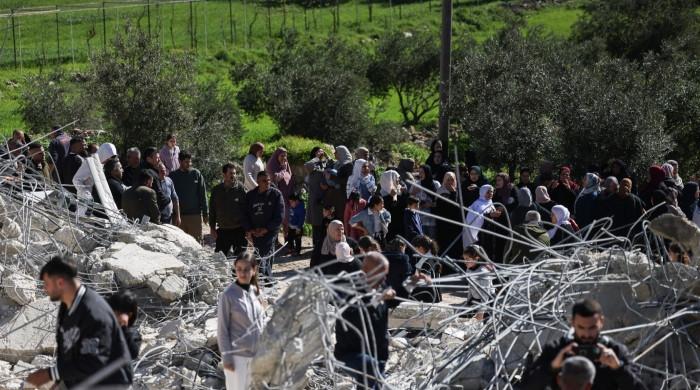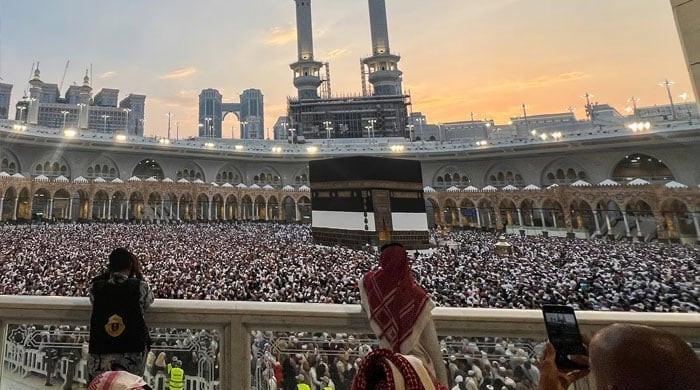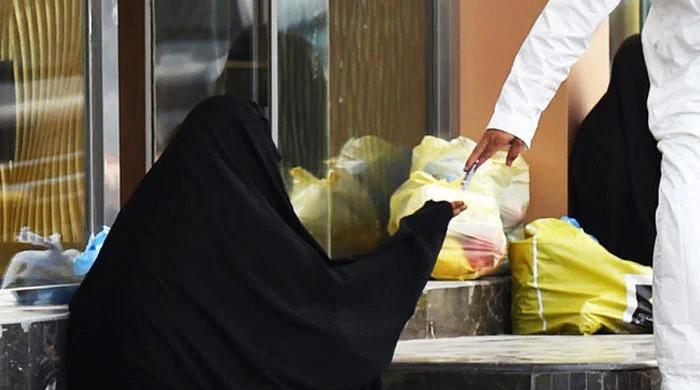‘As the bomb exploded, he was in the air and I was on the ground’
Rani lost her 11-year-old son, Faraz, when the tragedy struck
October 26, 2016
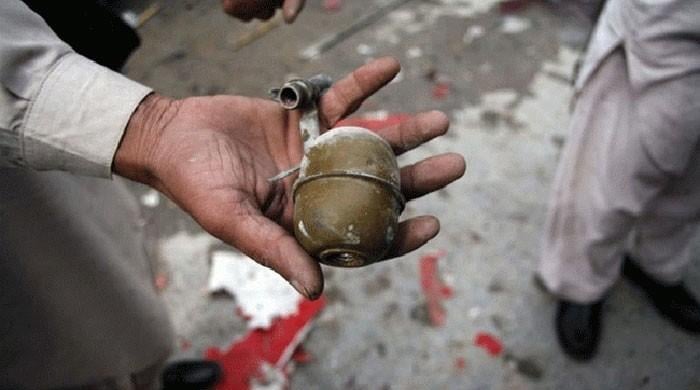
In an impoverished part of Liaquatabad Number 4, not far from Imambargah Dar-e-Abbas which came under a grenade attack on Monday, sits Rani who lost her 11-year-old son, Faraz, when the tragedy struck.
Rani and her husband, Muhammad Shafique, had moved to the neighbourhood two months ago after the space they lived on rent was demolished in August in an anti-encroachment drive by the government.
Now living under an open sky in an unfinished house of an empty plot, using a sheet as a makeshift roof, the bereaved family meets relatives and mourners who feel at a loss of words.
Trying to cope with the loss, Rani and Shafique muster strength and signal people to start gathering for Faraz’s soyem in the evening.
“Although he was the third child among five siblings, he was my youngest son and was the closest to me because unlike other children, he didn’t go to school so he would stick with me throughout till his friends came from their schools later,” she recounted.
“When I would press him to go to school, he would wave me off by saying that God had specially exempted him from studies. He was very enthusiastic about reciting Nohas so that’s what he did passionately,” she said.
But reciting Nohas was not the only activity which kept Faraz occupied. Rather, he was inseparable from his spinning top.
Pointing toward an empty plot Rani smiles, as she identifies the spot where he would play with his top. “I’ve kept his spinning top very carefully and even though his other siblings insist that they want it, I plainly refuse them because it’s a very dear memory for me. His father chose to keep his bloodstained clothes too but I want to hold on to this wooden toy.”
Like most parents pin hopes onto their offspring, Rani and Shafique were slightly worried about Faraz who opted out of school: “But he said such strange words only last week as he raised his thumb at us and confidently spoke, ‘I’ll do something which will make me unforgettable’, but little did we know he would depart in an equally unforgettable way.”
Shafique, who sells scrap to make ends meet, admits that out of his five children, Faraz was the most expressive one, who ran to embrace him when he returned after a hard day’s work: “He was fond of food, especially sweet items, but he would always share them with me if I were present. On his last day, he got me a juice and as I sipped it, he took it away from me and started sipping instead. I thought he just wanted me to taste so I was leaving when he stopped me and handed it to again. This happened thrice after which I asked him to share it with his sister but due to the fact I drank it last, he sipped some more because he didn’t want anyone else to drink it right after me.”
As Shafique ended, Rani added that Faraz was also cautious of his clothes and refused to wear clothes unless they were spotless. “Usually when he would want to imitate a notable speaker he would make sure that the attire matched, and then he would hold a book and try to copy their oratory style even when he couldn’t read.”
Recounting that tragic day, Rani said Faraz had accompanied her to the daily majlis at the Imambargah but somehow he got out before her: “He went to drink water, a little away from the entrance door, and his closest friend, Haider, was supposed to go with him. I guess his death was inevitable because the assailants aimed at the door but fortunately it hit a bike or else there would have been many casualties. But yes our son was taken away from us yet I feel he is in a much better place now.”
Faraz’s friend Haider sat next to Rani, and showed his plastic wrist band from the hospital. Discharged after treatment, Haider was also injured and witnessed the death of his friend very closely: “I had asked him to wait for me but he tricked me while I was wearing my shoes. I saw two men wearing helmets throw something and I shouted at Faraz to run but he didn’t hear me, and the next thing I knew he was in the air and I was on the ground.”
Haider said the best part about Faraz was that he did not fight and always tried to make friends patch up when they had an argument.
“We used to play cricket together and bowling being his strong suit he would always hit whatever was dubbed as a wicket,” Haider praised his deceased friend.
The eldest of the siblings, Shiraz spoke only when his mother asked him about Faraz, otherwise he sat with a sombre expression beside his father: “There were times when we fought and it was usually because of the top he played with. Only last week, we came across a carrom board and we quarrelled over taking turns but the day he was martyred, we went to a nearby place and ate Biryani in a single plate.”
Stepping toward the area where Faraz had planted seeds, it seemed that the child had green fingers because the plants were healthy: “He watered them daily and took great care of them but looking at what has happened, I am now greatly intrigued as to why he was building something out of sand here and called it a house. Usually, he wouldn't leave my side for even a bit. Now, he has simply disappeared from our lives and taken away the little happiness that we had left," Rani said quietly.
Passing over Faraz’s newly developed photos, it is Shiraz, his other brother, who suddenly beams up and inquires about photo studios.
“We should enlarge this photo and then we can give it to the people who collect the photos of martyrs on huge posters,” he suggested as all the peers nod in unison to the step aimed at honouring the memory of their loved one.




